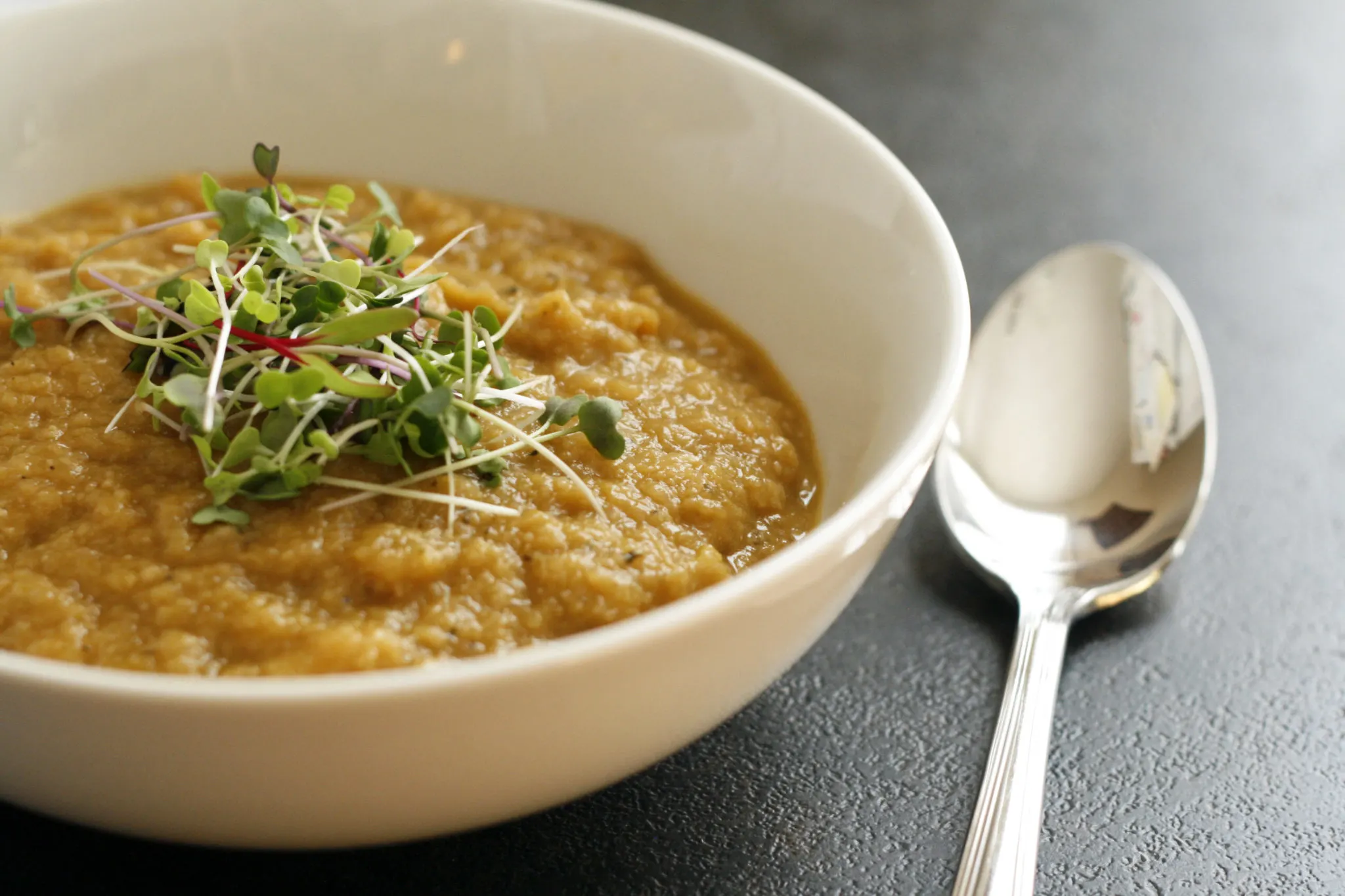Healthy meal prep saves time and ensures you eat well all week long. Here’s how to get started with tips, tricks and recipes.
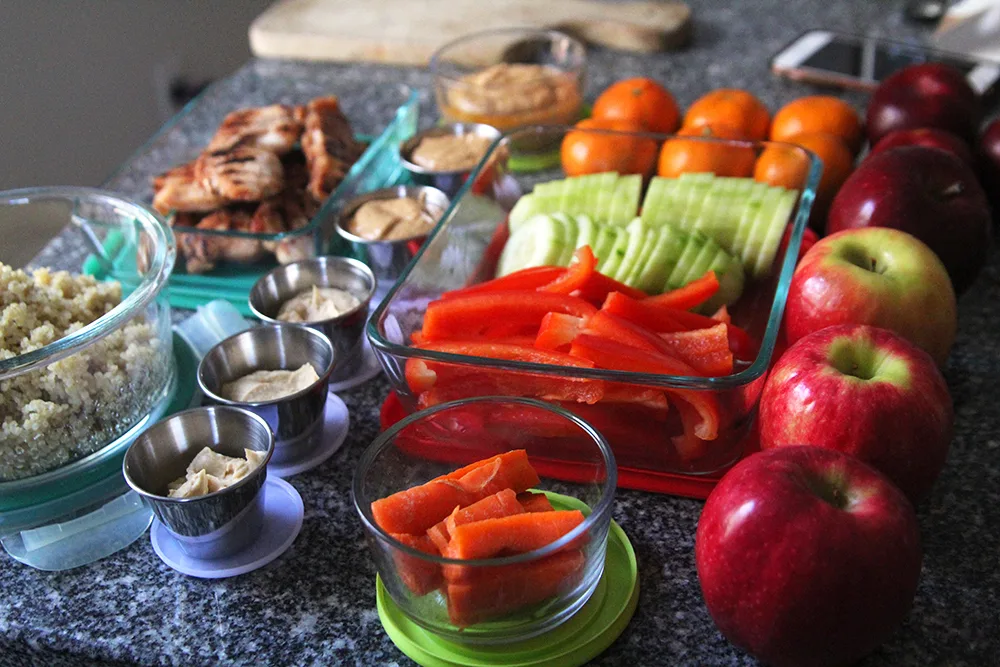
Here’s what happens when I don’t meal prep on Sundays: Monday rolls around in all its Mondayness, and I make a good effort to make meals. It’s fine. Everything comes out tasty. But then Tuesday and Wednesday and Thursday and Friday happen without pause and before I know it, I have fallen into bad habits and am ordering takeout because I didn’t plan ahead.
Every time.
But when I meal prep, devoting a little time on Sunday to planning, prepping and sometimes cooking for the week, the decisions are already made so it’s easy to choose healthy every day.
Finding time to cook healthy meals can be a challenge when your time is in high demand with work, activities, family, school or whatever else is important to you. And the quick options are so easy — even if they aren’t as healthy as what you could be making yourself. However, healthy meal prep is pretty easy too. And it’s rewarding. With a little planning and preparation, you can take control of your diet and nourish your body with delicious, wholesome meals.
Getting Started
Ready to get started with healthy meal prep? These steps will set you up for success:
Set Your Goals
Why do you want to meal prep? Defining your objectives — whether it’s to eat better, save time or maintain certain health requirements — will help you set parameters around your meal prep. For instance, do you really need to plan for dinners on your five busiest nights each week? Or do you need to plan all your meals every day? Also consider easing yourself into meal prep. What if you prepped a couple meals to start and worked your way up to a full week’s meals?
Plan Your Meals
Once you know how many and which meals you need to plan, you can begin the actual planning. Set aside time — I find Friday or Saturday works best for me — to brainstorm. Take into consideration your schedule, what’s happening during the week, your nutritional needs, your dietary preferences and even what you already have on hand. It can also help to check the local store flyers to see what’s on sale if budget is a factor (and it is for many of us). As you select your meals for the week, aim for a balance of lean proteins, whole grains, healthy fats and plenty of fruits and vegetables.
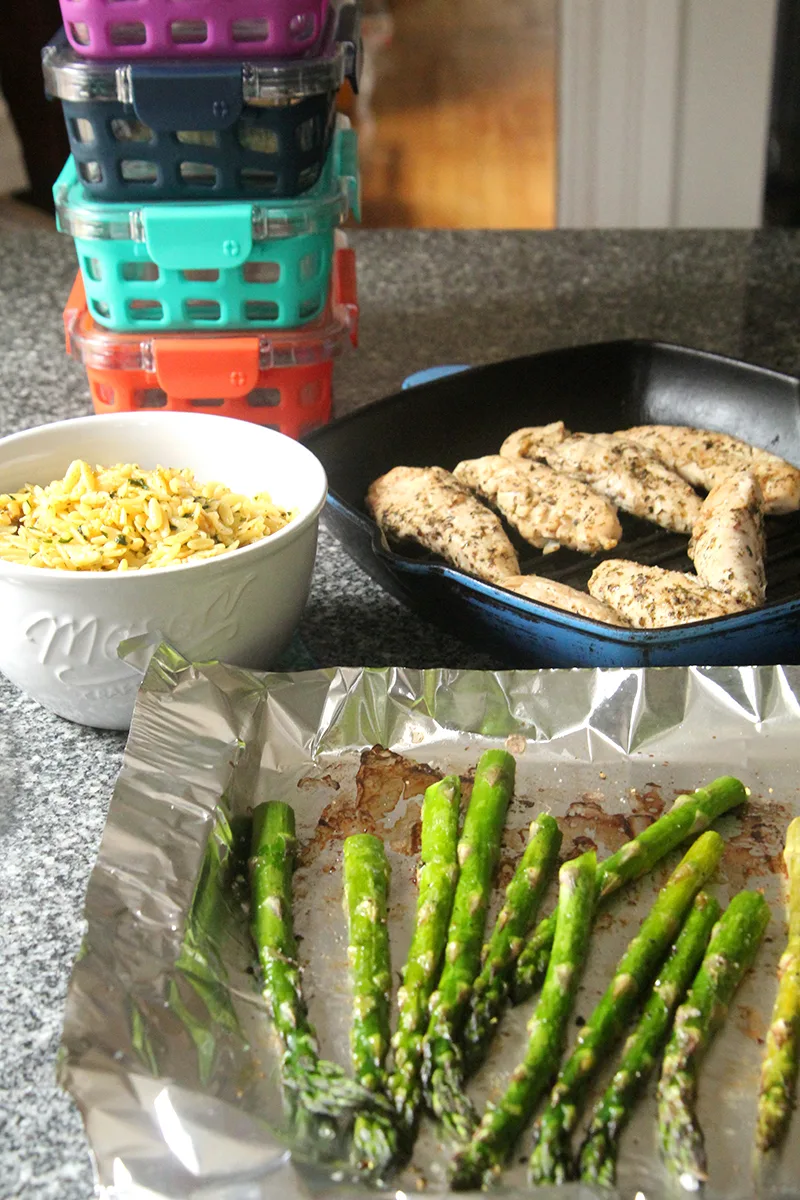
Invest in Quality Containers
Do containers matter? Absolutely. Over the years, I’ve tried so many different ones and have found that good glass containers with locking lids do the best job with keeping foods fresh and ready. Whatever containers you prefer, make sure you have them in a variety of sizes so that you can store prepped ingredients, meals and condiments easily and efficiently.
Stocking Your Kitchen for Healthy Meal Prep
Meal prep isn’t just about planning ahead. It’s also crucial to have the right ingredients on hand. Here’s how to stock your kitchen for healthy cooking:
Fresh Produce:
Load up on a variety of fresh in-season fruits and vegetables. Wash, chop, and store them in portioned containers for easy access. But, a caution: don’t buy more than you can eat in a week.
Lean Proteins:
Choose lean sources of protein such as chicken, turkey, fish, tofu, eggs or beans. When appropriate, cook them ahead of time and portion them out for meals throughout the week. For instance, eggs can be hard boiled ahead of time for easy peeling and eating.
Whole Grains:
Keeping whole grains in the pantry can help with both meal prep and cooking healthy meals on the fly. Brown rice, quinoa, oats, farro and whole wheat pasta are all good choices to have on hand (as long as you like them!). These complex carbohydrates provide sustained energy and are a staple in many healthy meal prep recipes.
Healthy Fats:
Healthy fats are an important part of a healthy diet. Nuts, seeds and olive oil are good to have on hand and use often. When they are in season, avocados can also be a wise addition to meals. Healthy fats are essential for brain health, hormone production, and overall well-being.
Herbs and Spices:
Want flavorful meals? Enhance flavors by using dried herbs and spices such as like garlic powder, onion powder, basil, rosemary, thyme, paprika and cumin. When stocking your pantry, it’s a good idea to only add to your herb and spice collection as you use them though — that will ensure you don’t have more than you will use.
Step-by-Step Guide to Healthy Meal Prep
Now that you know the basics, it’s time to do the meal prep. Here’s how:
1. Choose Your Recipes/Meals
Select a few recipes or meals that you’d like to prepare for the week ahead. Consider recipes that are simple, nutritious and can either reheat well or be prepped ahead for cooking later. Make notes of how you want to prep each.
2. Make a Shopping List
Based on your chosen recipes, make a list of all the ingredients you’ll need. Check your pantry and fridge to see what you already have on hand to avoid unnecessary purchases. Also include anything you might want for healthy snacks during the week.
3. Grocery Shopping
Use your shopping list when you head to the grocery store, ensuring you purchase all the necessary ingredients. Online ordering for pickup can also help you stay on track and ensure that you don’t impulse buy foods you don’t need.
4. Prep Ingredients
Once you’re back home, set aside some time to wash, chop and prepare your ingredients. This could include marinating meats, cooking grains, roasting vegetables and portioning out snacks. Hold off on prepping ingredients that are super perishable. For instance, avocados shouldn’t be cut until you are ready to eat them.
5. Cook and Store Your Meals
If you are cooking some meals ahead of time, do that. Store the meals in whatever way makes most sense for you — such as individual portions or by dish — using those containers you purchased for this purpose. It’s a good idea to label the containers as well and note the day they were cooked. Some meals may be best stored in the freezer for defrosting later in the week.
6. Clean Up
Okay, okay. This isn’t exactly healthy meal prep but it’s a good general rule: clean up your kitchen when you are done cooking. A clean kitchen is so much more inviting to use.
Healthy Meal Prep Recipes
Need some inspiration for your meal prep menu? Here are a few nutritious and delicious recipes to try:
1. Kale Quinoa Salad with Cara Cara Oranges
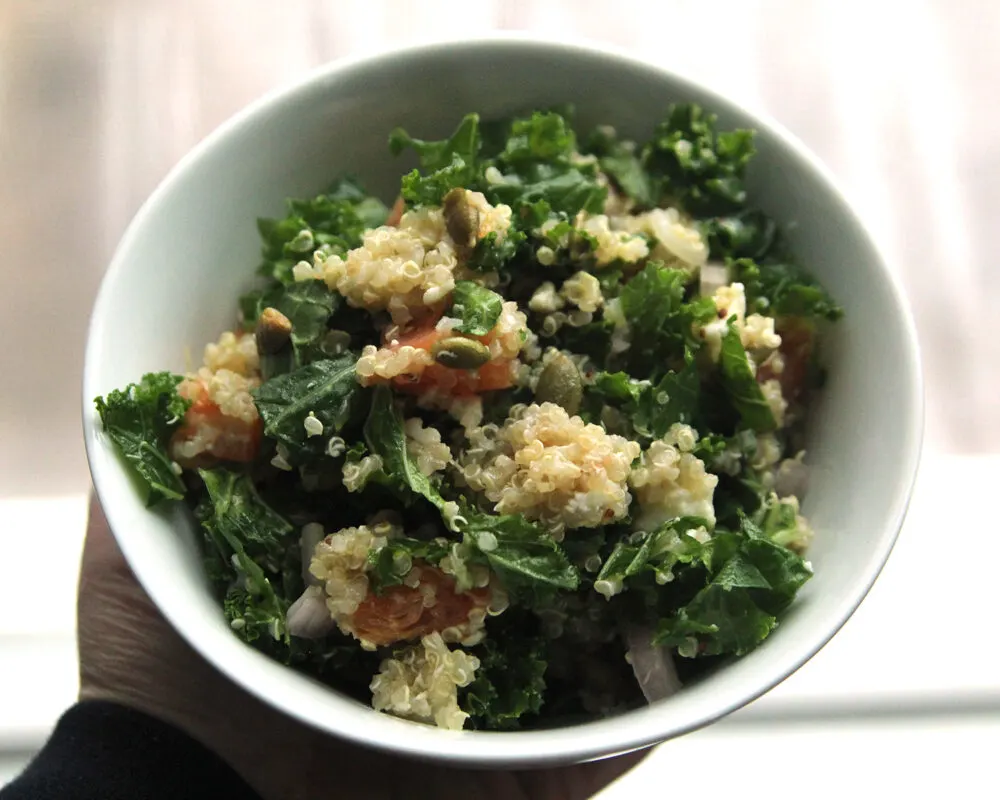
This Kale Quinoa Salad with Cara Cara Oranges is a lovely, healthy quinoa and kale-based salad with delightful Cara Cara oranges, pepitas and a bit of feta cheese. If you aren’t into cheese though, the feta is totally optional.
2. Zesty Chicken Bowls with Kale and Pasta
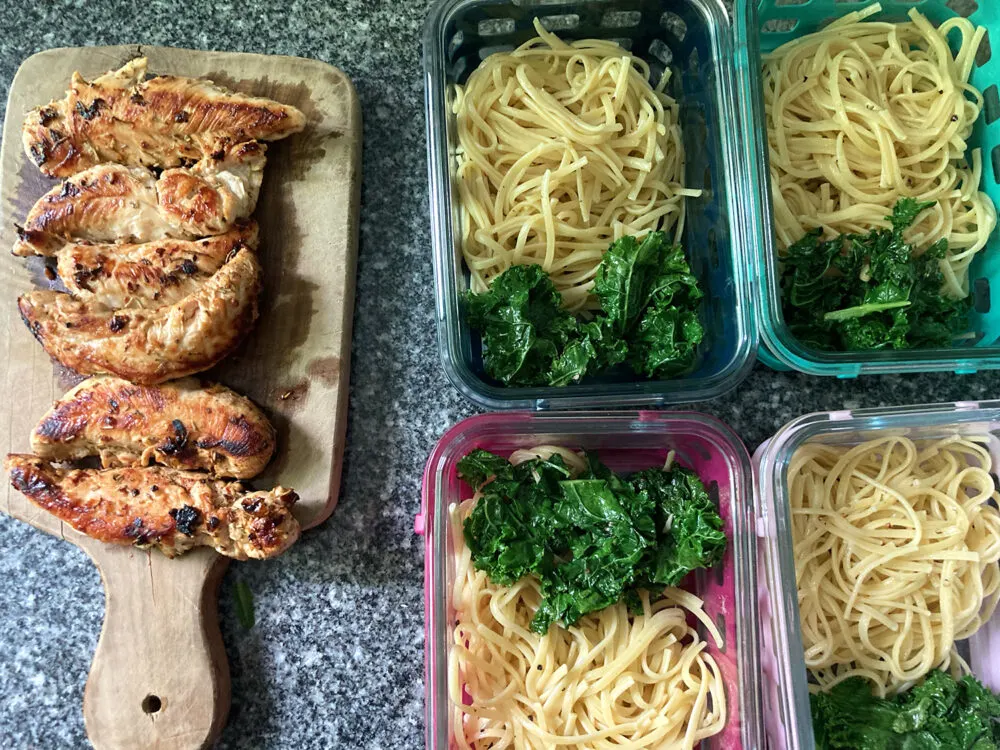
Chicken marinated with lemon, rosemary, garlic and crushed red peppers star in these Zesty Chicken Bowls with Kale and Pasta. Quick to make!
3. Quick Black Beans with Tomatoes
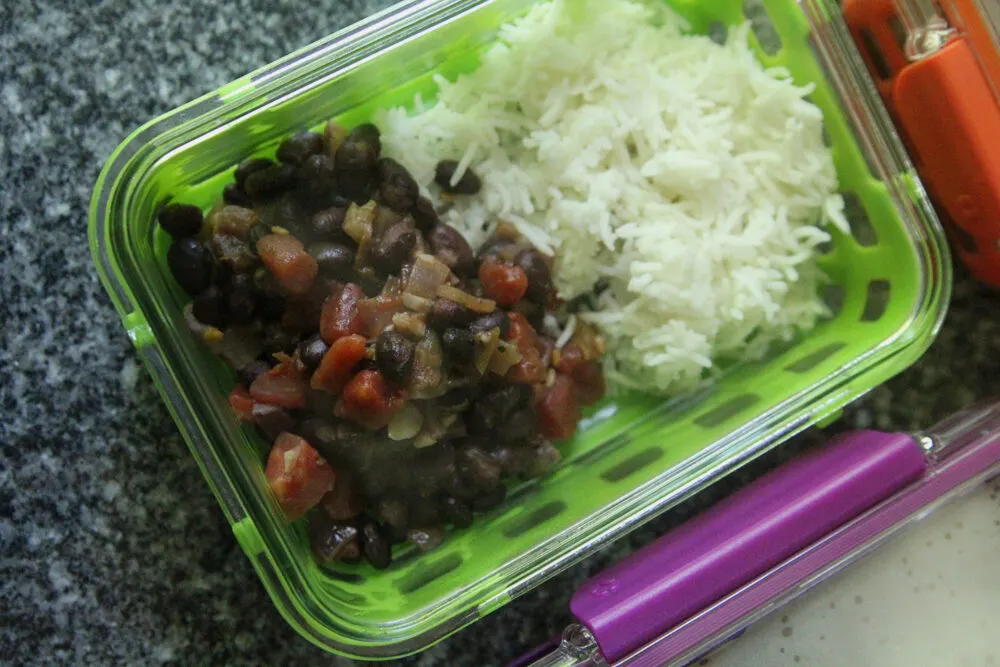
With onions, garlic and a hint of lime juice, these Quick Black Beans with Tomatoes are a zesty — a little spicy — addition to many dishes. Try them over rice, on baked potatoes, as part of nachos or on salad!
4. Make-Ahead Mini Mediterranean Frittatas
Make-Ahead Mini Mediterranean Frittatas are filled with red pepper and spinach and a touch of feta, these flavorful mini frittatas are a great quick and easy option for busy mornings.
5. Cauliflower Leek Soup
Cauliflower Leek Soup is a sensual soup with notes of sweetness from the leeks, onion and cauliflower balanced with thyme, salt and pepper and hot sauce.
Q&A
Q: How long can I store prepped meals in the fridge?
A: Most prepped meals will stay fresh in the fridge for 3-4 days. For longer storage, consider freezing individual portions and reheating them as needed.
Q: Can I customize recipes to fit my dietary restrictions?
A: Absolutely! Feel free to modify recipes to suit your dietary needs and preferences. Swap ingredients, adjust seasoning, or explore alternative cooking methods to make the recipes work for you.
Q: How can I prevent meals from becoming bland or repetitive?
A: Experiment with different flavors, cuisines and cooking techniques to keep your meals exciting. Don’t be afraid to try new recipes or add a variety of herbs, spices, and sauces to elevate the taste of your dishes. Also, cooking dishes like roast chicken can allow you to customize one meal in many ways such as using the chicken in wraps, on rice bowls and in quick soups.
Healthy meal prep is not only a time-saving strategy but also a powerful tool for achieving your nutrition goals and maintaining a balanced lifestyle. Embrace the journey and make meal prep a sustainable habit that supports your overall health and well-being.


